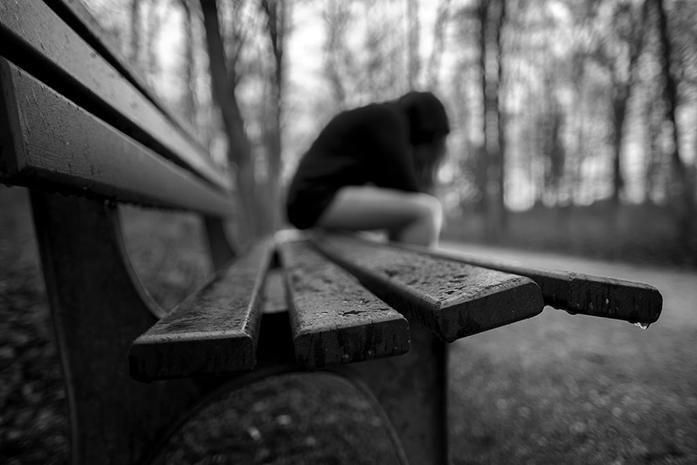by Logan Pillard
For most people, the New Year is a new beginning. It’s a chance to reset the clock and become the persons they aspire to be. For individuals with depression, however, this lifestyle change, along with the already strenuous daily fight to not lie in bed all day, makes achieving any milestone of a New Year’s resolution twice as hard.
Don’t have depression? Let me paint you a picture:
You walk to the Campus Recreation & Wellness Center with a light in your eyes, full of hope and anticipation to become the ‘new’ you. As you walk in the front door and check in, you’re greeted by a sea of muscle bench-pressing more than you weigh. Your body instantly becomes heavy. You take a deep breath as that oh-so familiar feeling of self-doubt washes over you, and all motivation attempts to escape. You reel it in with that last bit of new-year-new-me hope as you climb the stairs to the upper levels.
You see an empty tread mill. I can run, easy enough. You jog for a minute or two until you start to get out of breath and have to slow down. Everyone around you is still at full speed. The heaviness sinks back in, and your legs become lead. Defeat. Weakness. Everyone around you is staring at you and judging you, or at least that’s how it feels. You decide you’ve had enough for the day, buy a smoothie, and walk home.
Contrary to popular depictions in the media, depression is so much more than walking around feeling blue. If anything, it’s 50 shades of gray (and not the kind we all secretly read). It’s an emptiness that was once filled by the things you love but now barely shrug at. It’s a lack of motivation so strong that just getting out of bed in the morning is an accomplishment. Depression is that little voice in the back of your head that points out each and every flaw every time you look in the mirror and tells you that everything is your fault and you deserve this emptiness.
With this in mind, you can imagine how going to the gym and being surrounded by every hot person on campus congregated in one area doing things you could only wish you could do can be a problem. The worst part is knowing that exercise can actually help your depression.
And eating healthily? Forget about it. Depression is also characterized by a lack of appetite, contributing to the feeling of not having any energy throughout your day. Even when you want to make healthy meals, sometimes crossing the threshold of your apartment releases a wave of exhaustion over you, and even the three minutes it takes to make ramen feels like an episode of “Master Chef.”
So what can you do if you have depression and want to get in better shape? Go to the gym with a friend who may have more experience than you. He or she can teach you how to use the machines and set goals. Attend classes offered at the Rec Center. These classes are great for structured exercise and being surrounded by people with similar skill sets as you. And finally, treat yourself to that smoothie after the end of your workout. Congratulate yourself on the fact that you made it to the gym, and not all journeys begin with strides, but baby steps.



